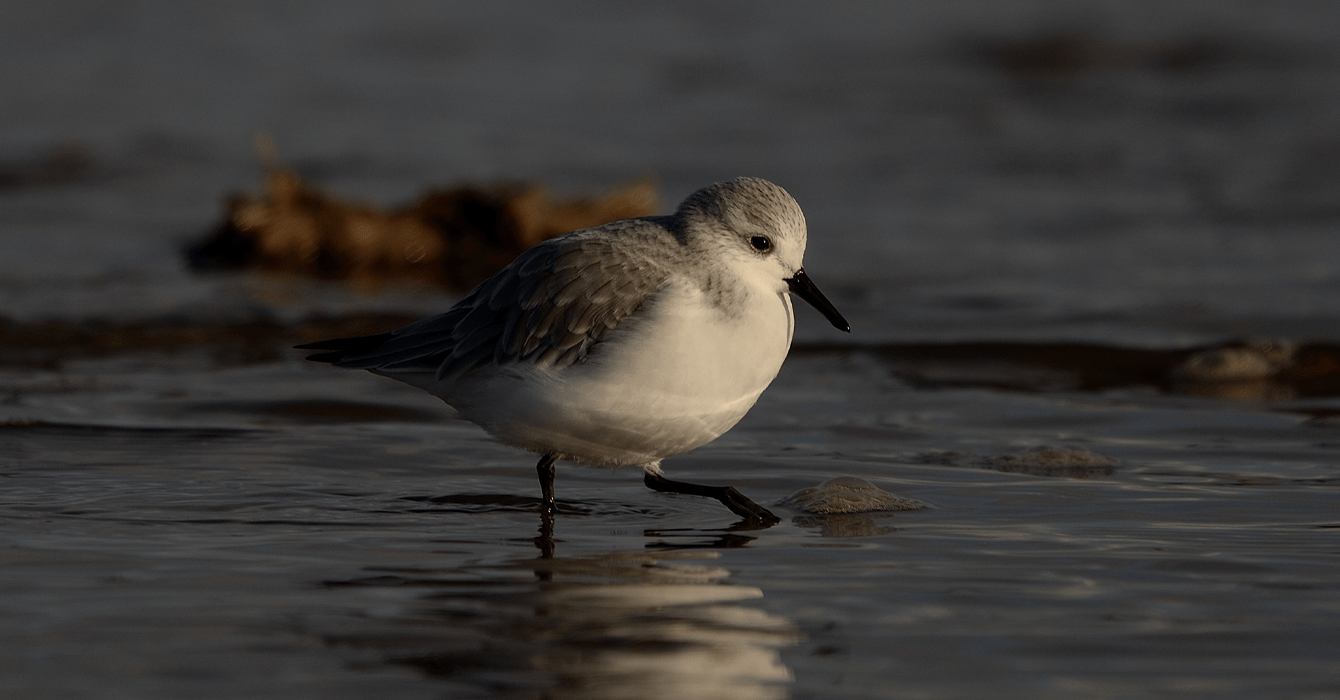Chris
10/10/2024 10:04:57 AM
3 mins read

A bird's body tells it exactly when to migrate. Each year at the same time, glands in its body release hormones into its system. Environmental cues, including the gradually changing day length, as days get shorter in late summer and longer in early spring, cause this to happen automatically.
Saturday October 12 is World Migratory Birds Day and, here in North East Lincolnshire, thousands of wetland birds are now stopping off along our coastline as they make the exhausting journey south from the Arctic to Africa for the winter.
Every autumn, 90-million birds fly along the East Atlantic Flyway, a super-highway that follows the coastlines from the Arctic, through Europe and into Africa, flying back again in the spring.
Ringed Plovers, Sanderlings, Dunlin, Whimbrel, Grey Plovers and Redshank are just a few of the birds who depend on the Humber Estuary to refuel on their way south. They need to be undisturbed while feeding so that they can make the last leg of their journeys.
This is when our unique mitigation sites at Cress Marsh and Novartis Ings come into their own. The rich feeding grounds found along the Humber Estuary, and in Cleethorpes, act like a motorway service station by providing a rest stop for these migrating birds. Some pass through on their way to other places, whereas others stay all winter. There are very few places where people can see these birds so closely as in Cleethorpes.
Migration has evolved to enable species to survive, but birds may face many dangers on the way. These include:
- Bad weather, especially extreme events. Anything from sandstorms and wildfires to storms at sea can put birds in serious danger. New arrivals need to start feeding quickly, so bad weather at their destination, like late snowfall, can also spell disaster.
- Birds can get lost, despite their navigation skills. Youngsters on their first journey south can easily go astray, especially if they meet bad weather.
- Collision course. Tall, man-made objects can be deadly to migrating birds. Skyscrapers with reflective glass walls are among the worst for migrating land birds. If power lines and wind turbines are placed along key migration routes, they can cause collision problems for larger soaring migratory birds.
- Loss of resting spots. Migrating birds need safe stop-offs where they can rest and eat along the way. In the UK, wetlands are havens for migrants. If people damage these places or disturb birds while they’re roosting and feeding, the birds have nowhere to recover and refuel.
- Predators. Many predators have migrating birds on their menu. Resting along the way can be risky.
- Hunting – Migrating birds may be the target of legal hunting or illegal killing such as trapping during their journeys.
Enjoy our birds this weekend, but please help them to get the rest they need by following these simple steps:
- Keep to the designated footpaths
- Keep dogs under control
- Anyone using the coastline for water sports must stay away from the salt marsh and sand banks.




